
Successful businesses have many moving parts. The data and metrics have to be accounted for, personnel has to be organized, and strategy must be crystal clear to keep everything operating fully. However, the only way these things happen is with guidance.
Guidance comes in many different versions. Here, we’ll discuss guidance in the forms of leadership and management.
Leadership vs management is a timeless debate in the workplace. There are many questions surrounding the two concepts. Can a good leader be an effective manager, does a manager need leadership skills, are the two concepts even interchangeable? Well, it starts with defining each role.
Making a Manager
Management is much like conducting an orchestra. Managers ensure everyone operating under them performs their function, to create a single, comprehensive sound. Managers are usually responsible for a specified department (or departments) within the organization. Regardless of which department they call home base, a manager either leads a team directly or manages supervisors who in turn lead teams.
Effective managers are usually adept at the following:
- Project analysis. Taking a project request and disseminating it (usually with a workflow or a roadmap) to the rest of the team.
- Data management. Managers are responsible for day-to-day work efforts. They also review resources and anticipate future needs. Organization and consistency are key for success here.
- Process implementation. Managers are also responsible for establishing work rules, processes, standards, and operating procedures.
Usually, managers focus on routine team interactions that focus on operations.
Learning to Lead
Leadership is trickier to quantify. It’s a skill that is intangible since you don’t necessarily need a specific title to be considered a leader. Effective leaders share are the following traits:
- Honesty and integrity. People have to believe you and just as importantly, they have to believe in you.
- Vision. As a leader, you must be aware of where you are, where you want to go, and how you can get your co-workers there with you.
- Inspiration. When things get dark, people look to their leaders as beacons of positivity and encouragement. Sometimes an effective leader must believe in the team more than team members believe in themselves.
- Communication. Open-door policies are great tools for leaders. As a leader, you don’t necessarily have to take every suggestion you get, but making people feel like they were heard goes a long way in boosting and maintaining morale.
- Follow through. This might be the most important trait of an effective leader. You have to deliver on the promises you make. Once you lose credibility, you lose the faith of your coworkers and subsequently your ability to lead.
Regardless of your affinity towards leadership or management, there are ways to boost your efficiency at either approach. For the managerial side of the house, Actsoft supplies countless options for optimizing performance by analyzing the data your business creates. Wireless Forms, GPS tracking, Geofences, can all be used to ensure employees stick to the game plan you’ve created for their projects.
When it comes to leadership, communication is key. Dispatching and messaging are two great ways to communicate with employees on the go, so the strategy behind their actions is always clear. When problems arise in the field, these tools are invaluable for leading them through the obstacles your teams encounter.
Successful organizations need both leaders and managers. These sets of people work towards different goals and they utilize different methods to achieve them. That being said, Actsoft has the solutions needed to support the demands of both leadership and management personnel in the workplace, ultimately raising your business to new heights.
Have any questions on how Actsoft can help you?

















 Encore & Geotab Drive
Encore & Geotab Drive

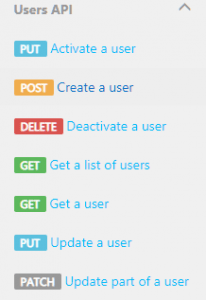



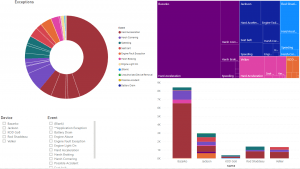


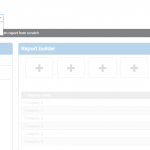
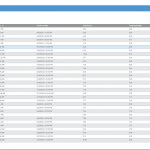
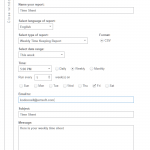




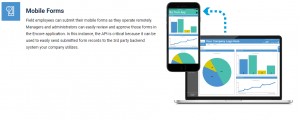
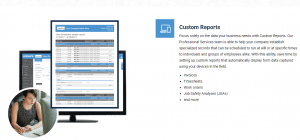
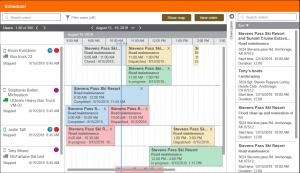
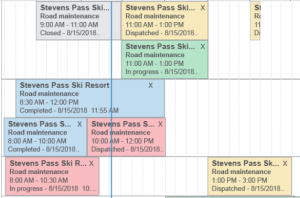
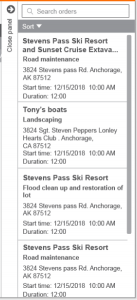

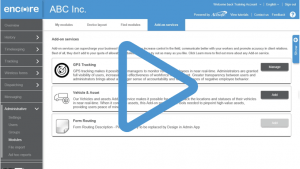
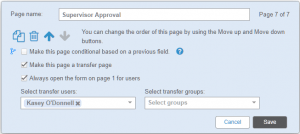
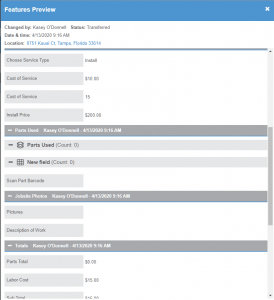
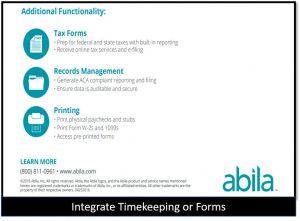
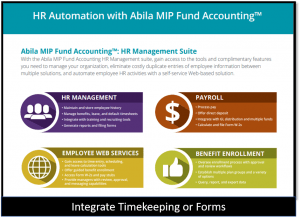

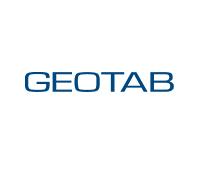 Gain even greater insight into the daily activities of your fleet using the combination of Geotab and Actsoft. Geotab devices provide detailed data collection and seamless integration with our solutions; learn more about the ways your vehicles are being used daily with the power of this tandem.
Gain even greater insight into the daily activities of your fleet using the combination of Geotab and Actsoft. Geotab devices provide detailed data collection and seamless integration with our solutions; learn more about the ways your vehicles are being used daily with the power of this tandem.



 Actsoft partnered with Odin to provide our solutions overseas, through payment processing integrations. Odin helps us support user management for our software; customers can also purchase our products through Odin’s billing platform.
Actsoft partnered with Odin to provide our solutions overseas, through payment processing integrations. Odin helps us support user management for our software; customers can also purchase our products through Odin’s billing platform.

 VisTracks powers our Electronic Logging Device (ELD) solution, which enables transportation businesses to easily automate their hours of service logs, remain in governmental compliance, and reduce their potential to incur costly fines.
VisTracks powers our Electronic Logging Device (ELD) solution, which enables transportation businesses to easily automate their hours of service logs, remain in governmental compliance, and reduce their potential to incur costly fines. Integration between Actsoft solutions and BeWhere’s software products is available. Take your team’s asset tracking, cellular data connectivity, and field insight a step further with effective, cross-application compatibility.
Integration between Actsoft solutions and BeWhere’s software products is available. Take your team’s asset tracking, cellular data connectivity, and field insight a step further with effective, cross-application compatibility.
 CalAmp tracking devices for vehicles and assets alike are compatible with Actsoft solutions, making it easy for you to efficiently monitor your equipment and fleet cars. Help your team enhance accountability, safety, and savings through a combination of easily installed hardware and intuitive software.
CalAmp tracking devices for vehicles and assets alike are compatible with Actsoft solutions, making it easy for you to efficiently monitor your equipment and fleet cars. Help your team enhance accountability, safety, and savings through a combination of easily installed hardware and intuitive software.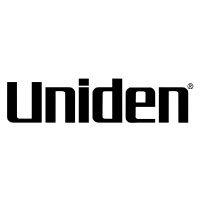 Our partnership with Uniden is ideal for companies looking to gain advanced diagnostics on their fleets. Uniden’s extensive product listing of car electronics like radios, dash cams, radar detectors, and in-vehicle communicators work in concert with Actsoft’s solutions to better connect your vehicles to the company headquarters.
Our partnership with Uniden is ideal for companies looking to gain advanced diagnostics on their fleets. Uniden’s extensive product listing of car electronics like radios, dash cams, radar detectors, and in-vehicle communicators work in concert with Actsoft’s solutions to better connect your vehicles to the company headquarters.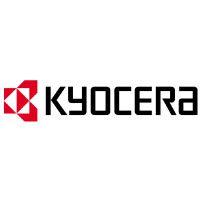 Kyocera offers a wide range of mobile devices, ranging in design from traditional phones to ultra-durable handset technology. Actsoft is able to equip organizations in a variety of different industries with solutions for improved business, while Kyocera supplies the technology they can flawlessly operate on.
Kyocera offers a wide range of mobile devices, ranging in design from traditional phones to ultra-durable handset technology. Actsoft is able to equip organizations in a variety of different industries with solutions for improved business, while Kyocera supplies the technology they can flawlessly operate on.

 Our software is the perfect complement to Apple’s user-friendly technology. Equip your workforce with the devices and solutions it needs for optimized productivity during daily operations with Apple and Actsoft.
Our software is the perfect complement to Apple’s user-friendly technology. Equip your workforce with the devices and solutions it needs for optimized productivity during daily operations with Apple and Actsoft.
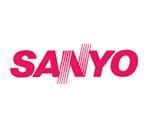 Actsoft and Sanyo teamed up to merge intuitive business management software with the technology of today. This partnership allows us to provide you with all the tools your team needs for improved workflows, better coordination, and optimized productivity.
Actsoft and Sanyo teamed up to merge intuitive business management software with the technology of today. This partnership allows us to provide you with all the tools your team needs for improved workflows, better coordination, and optimized productivity.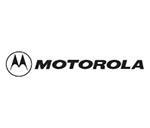 Motorola’s mobile technology works in tandem with our solutions to provide extra versatility to your business practices. Coupled with our software’s features, Motorola’s reliable devices make connecting your workforce simpler than ever to do.
Motorola’s mobile technology works in tandem with our solutions to provide extra versatility to your business practices. Coupled with our software’s features, Motorola’s reliable devices make connecting your workforce simpler than ever to do. We’re able to bundle certain solutions of ours (including our Electronic Visit Verification options) with Samsung devices to help your team achieve as much functionality as possible, while keeping rates affordable. Use these combinations for accurate recordkeeping, improved communication, and smarter data collection in the field.
We’re able to bundle certain solutions of ours (including our Electronic Visit Verification options) with Samsung devices to help your team achieve as much functionality as possible, while keeping rates affordable. Use these combinations for accurate recordkeeping, improved communication, and smarter data collection in the field.